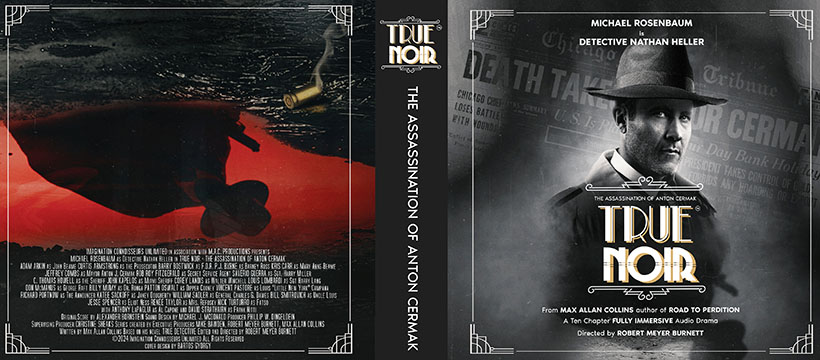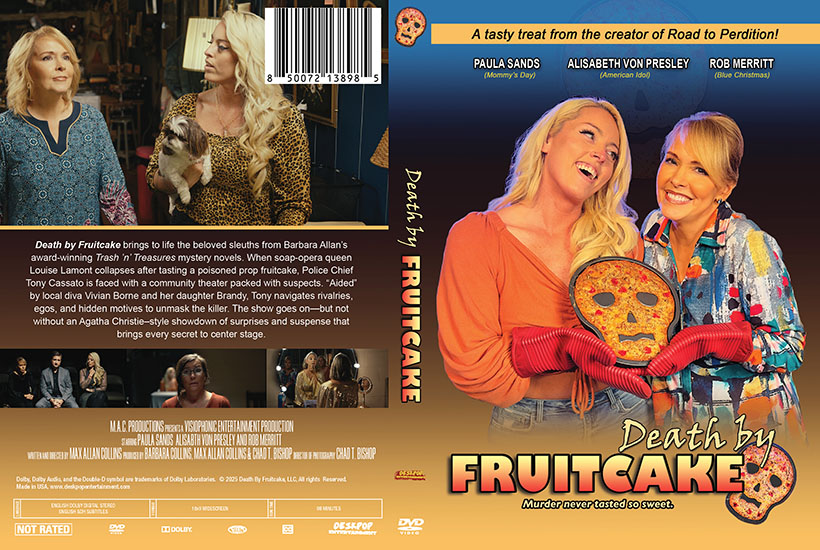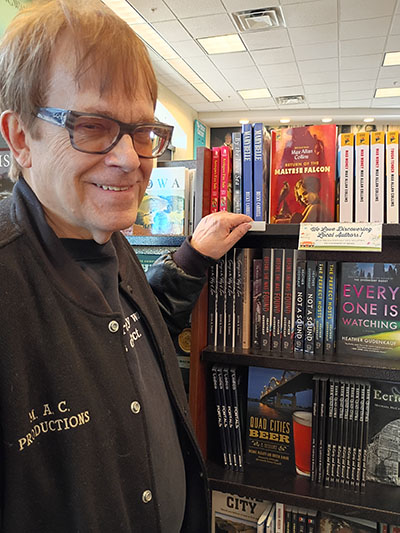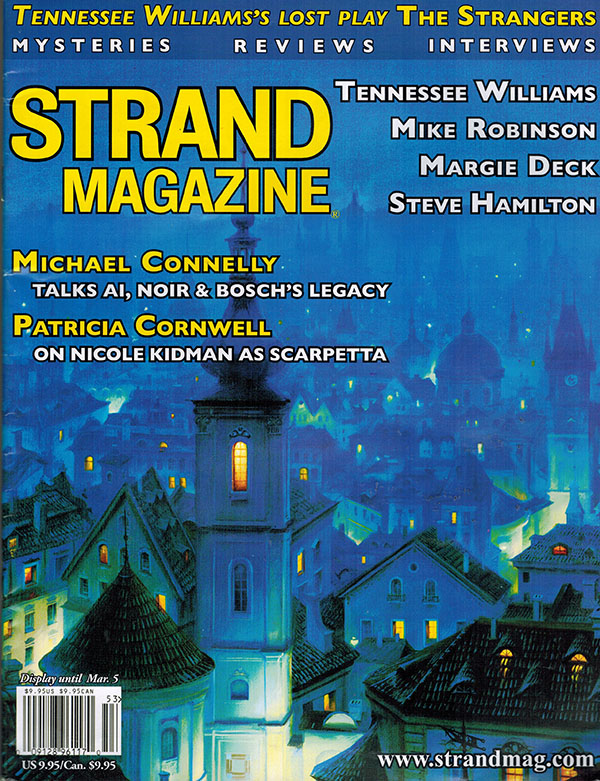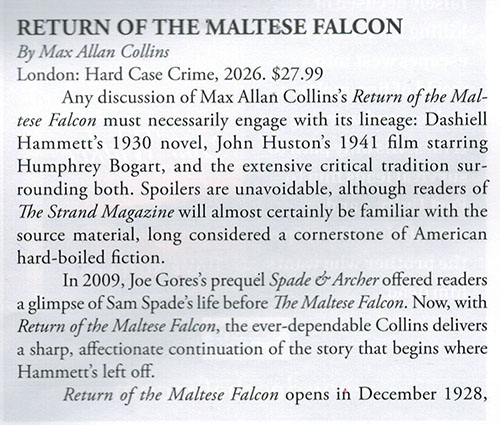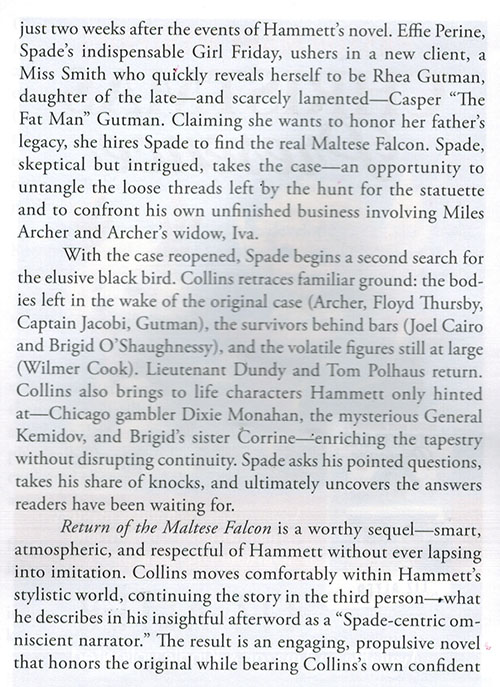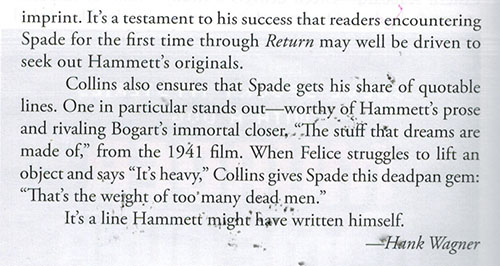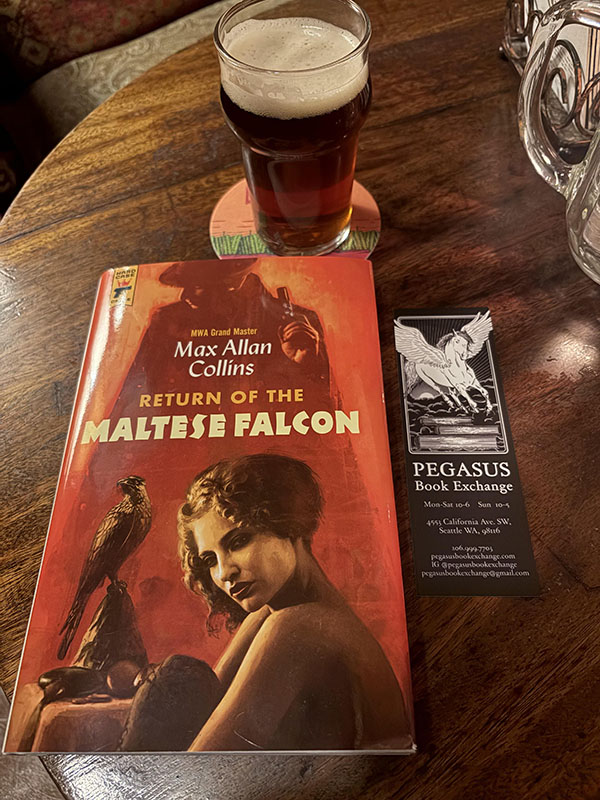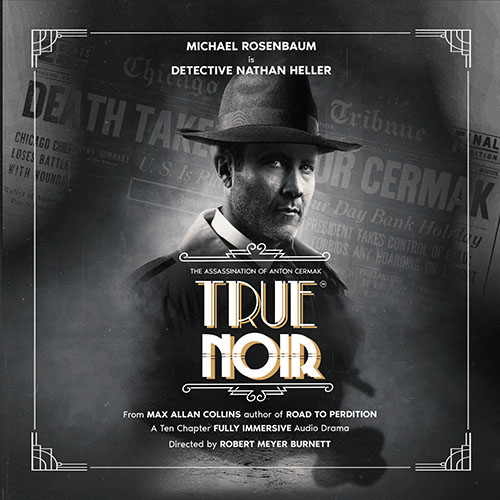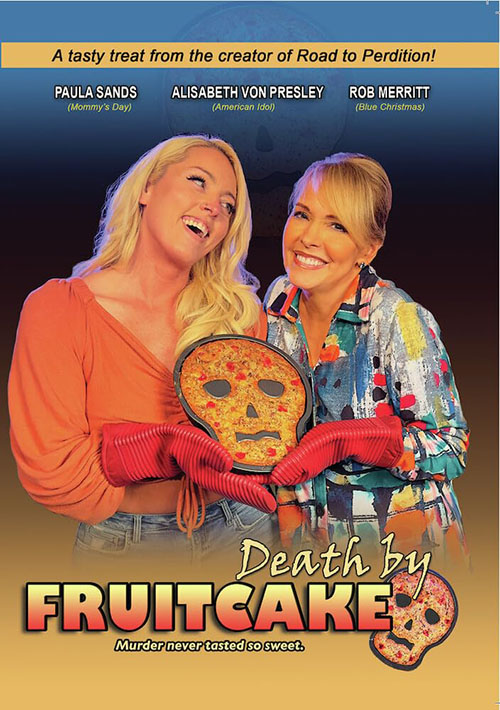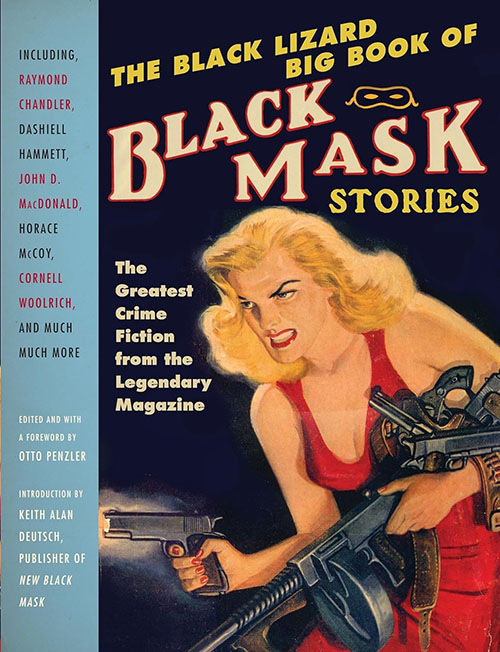As I put this together, I’m hoping my son Nate can help me share with you several good True Noir: The Assassination of Anton Cermak clips that have appeared here and there.
In the meantime – here, a week after our international distributorship for True Noir kicked in – an amazing revised version of our website, truenoir.co, has gone up, thanks to my pals and accomplices Phil Dingeldein and Mike Bawden. If you have even the slightest interest in my work, you need to click on that link and have a look around. Be sure to click on the photos of our voluminous, world-famous cast and crew, for full-color photos and bios.
You can access the whole damn thing (that is, True Noir: The Assassination of You Know Who) on Audible; if you have a subscription there, you can use a credit and receive our nearly five-hour effort – words, music, sound effects. I must salute another accomplice, the man who put it all together: director/editor Robert Meyer Burnett.
Now, if you’re not an Audible subscriber, your best bet is to go to:
Downpour (THIS IS WHERE YOU CAN BUY THE 4-CD SET as well as find other options)
Other available options are:
Spotify
Apple Books
Google Play Books
Chirp
Libro.fm
Potential Library readers should use Libby (by OverDrive). No link available.
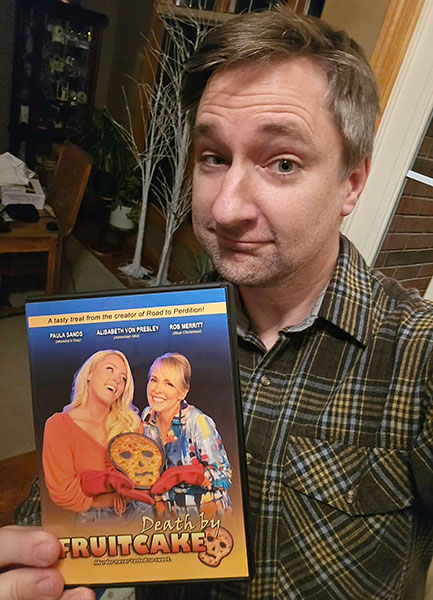
Rob Merritt and the new DVD starring…Rob Merritt!
The other big M.A.C. release (both came out Feb. 17) is Death By Fruitcake, our little indie film bringing the “Barbara Allan”-bylined Antiques mystery series to life. Again, you can find it here:
AppleTV
YouTube Movies
Google Play
Amazon Digital Buy/Rent
Amazon DVD
Oldies.com
That last one has the DVD at a significantly cheaper price than Amazon, but if you’re a Prime member and get free shipping, Amazon is the better option. Oldies “free shipping” doesn’t kick in till you spend $75.
I haven’t done a giveaway on Death By Fruitcake because I received no comp copies and I have to pay full price per copy to get ‘em. I am a nice, generous and wonderful man to his readers; but not that nice, generous and wonderful.
We don’t have a Blu-ray this time, but the DVD looks fine. We supervised the packaging. Bare bones – no commentary (though I’ve been doing commentaries with Heath Holland on all kinds of movies by other people!); but the disc itself has a terrific fruitcake skull image.
On a related indie front, Mickey Spillane’s Cap City (based on the Spillane/Collins novella, “A Bullet for Satisfaction” in The Last Stand) won Best Scripted Feature at the Star City Film Festival in Des Moines. I co-scripted and co-produced with director David Wexler. Much more on that soon.

Red carpet at the Star City Film Festival (Barb and me in back)
Also, I’m directing a table read of my horror script, House of Blood, for a prospective indie movie based on my radio script for Fangoria’s Dreadtime Stories. It’s being presented at Muscatine (Iowa) Community College in the same Black Box space where we mounted Blue Christmas. The cast is mostly actors who were either in Blue Christmas or Death By Fruitcake or both. It’s at 7 on both Friday the 27th and Saturday the 28th of February. If you’re in the area, come. Otherwise, stay home and wait for us to turn it into a movie. (I’m talking to you, Mike and Jackie White!)
My birthday is coming in one week. I will be 78. I do not encourage gifts, but if you want to say something nice about me, write me at macphilms@hotmail.com, and I’ll share it here next week, on the big day. Of course, every day is a big day at my age.
Along those lines, I want to share a particularly nice missive I received from a reader. But, first, I will bitch about something. Anyone who invites nice comments about himself on his birthday obviously has a huge ego, but likely also a thin skin. As Bill Murray says in Groundhog Day: “Me…me…I am really close on this one.”
So I am going to carp about a certain kind of comment that appears on Amazon from readers who profess to be “really big fans” and then advise other readers not to buy this particular Collins book, because it misses the mark.
Okay, I am sure some of my work misses the mark (like this update, for example). One of those negative reviews appeared recently among dozens of overwhelmingly positive reader reactions to Return of the Maltese Falcon. It stung, and I stupidly replied (privately to the person) because I am a weak human being in this particular area.
I think it’s because there’s something personal about it. I generally shrug off bad reviews (and I’ve had my share) and have only very, very, very rarely responded to a pro reviewer. I enjoy good reviews but try not to take them to heart, because (I guess) if I take the good ones seriously, I have to take the bad ones too; good reviews are mostly just good press, as I see it. And some of the mixed or negative ones do point out flaws that I can work on.
But attacks from self-professed fans are different. They say, from one fan to the other, “Don’t read this one. He’s let us down.” That, my friends, is personal.
And it’s unkind. A really big fan would keep it to himself. A reader who says, “Sometimes Collins is good, sometimes, he’s bad, and this is a bad one” strikes me as fair. Or “I don’t know what the hell anybody sees in this hack Collins” – you know, that’s probably an opinion worth sharing.
The promise I will make to you is this: I will never phone it in, and never have. I’m in business to entertain, not just to be in business. But of course this is a business, and I don’t love it when someone who regularly does business with me discourages others from doing so. (Did I use the word “business” enough in that paragraph?)
I do enjoy it when readers step up to say, “I enjoy what you do,” and sometimes they have even been inspired (poor fools!) to go into fiction writing themselves. And now I will share a missive with you from David K.
M.A.C.
You have been kind enough over the years to have emailed back and forth from time to time about the Nate Heller books which I started reading back in 1980’s along with your westerns, the Galena books and your non-fiction along with Quarry.
I read your newsletter weekly and saw where you asked for any pictures from bookstores featuring
Return of the Maltese Falcon.This picture is from a Barnes and Noble in suburban Milwaukee as they had one copy on hand. I took the liberty of taking it from the other books, moving a book by Michael Connelly and placing yours in a more prominent display. I am hoping that just having one copy is indicative of sales of multiple copies at the store.
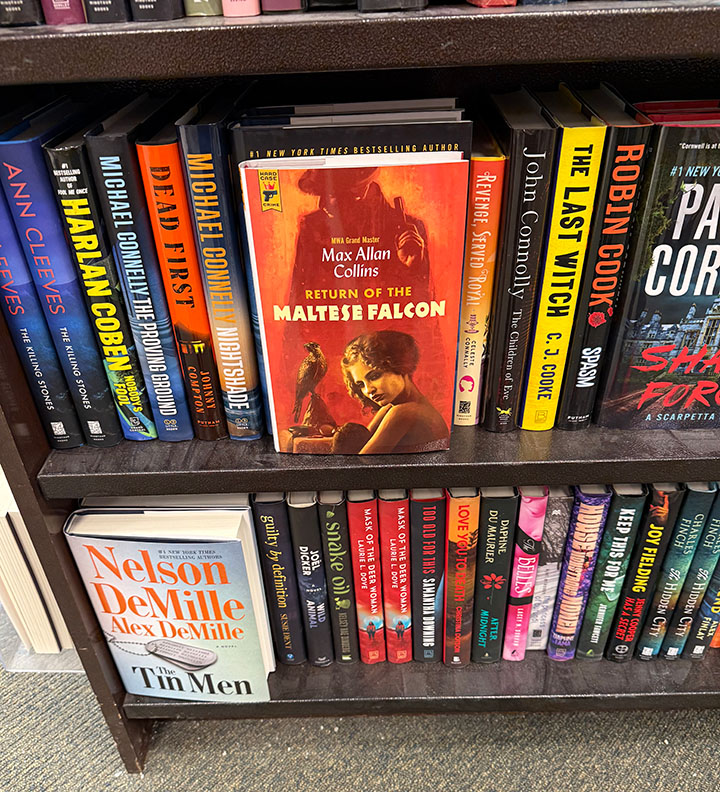
I am looking forward to reading this book and the final Heller when it comes out. And also planning on ordering
True Noir but need one of my kids to help download it to my phone. A technical wizard I am not.Anyway sir, thanks again for all of the work in your career. There will always be the critics but until they write a book or books and have had the success you have had, they really aren’t worth paying much attention to in my opinion.
